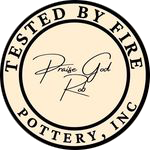Uncategorized
Building My Fourth Studio: Part Two
The inflexibility of Government: We have rules!
Why most potters live out in the country.
By finding and buying the property, I thought that the hardest part had been accomplished but soon discovered I was wrong. I set about trying to rezone a portion of the property in order to build the new studio and discovered that I needed an industrial zoning for my little pottery studio. It seemed absurd but I wanted to abide by the rules and regulations that had been established by the city. My father-in-law agreed to help me since he knew something about the process of rezoning.
Rezoning Complications
The first step in the process, as I remember it, was to submit an application for rezoning which is reviewed by the city employees in the zoning department and then they would make a recommendation to the zoning board. The zoning employees didn’t think that the industrial zoning was a good idea for that location and opposed rezoning. I pled my case to the zoning board and some of them knew me by reputation and a majority sided with me with the exception of one man. He knew my father-in-law and believed that he was up to something. The industrial zoning opens doors for a lot more than industry but it seemed that there was to much feeling in his rejection of my appeal to the Zoning Board. I believe that he had some sort of grudge against my father-in-law. He expressed a concern about my father-in-law planning to open a bar there. It didn’t seem to matter that I would live next door and wouldn’t want anything other than my studio next to me.
Another Layer in the Government Machine
The next step was to take my case to the city council, which usually rubber stamps the zoning commission’s recommendations. Still, the man on the commission that objected to my rezoning had the ear of Helen Dutmer, a city councilwoman from a district on the other side of town from me. She opposed the rezoning even though my property was not in her district. Since I did not have the political sense to contact my councilman and talk to him about what I wanted to do, he went along with her objection and voted against rezoning my property. Now I had a problem. I was stuck with a much more expensive mortgage payment and the lease on my studio.
The Way Around
My father in law suggested that I build a 600 sq. ft. garage on a 1200 sq. ft. slab. I would be able to get a permit to do that, and as soon as the city inspector signed off, enclose the back part of the slab giving me the size studio I thought I needed. I was not too fond of the idea but felt that I had no choice. There was already a meter from a previous structure, a gas line and meter from Grey Forest Utilities, a private provider, and water from a well. All of the things that the city uses to keep you from building something without permits.
Becoming Invisible
At the final inspection, when the inspector signed off on the building, he looked me in the eye, and said I don’t know what you plan to use this for, but I don’t think it’s a garage. I looked at him, smiled, and didn’t say a word. I had the start of my new studio, but I still had a long way to go. Within a couple of weeks, I started on the back half of the building. Even though we were on a busy road, nobody ever questioned what we were doing. In fact nobody ever questioned any improvement I made, not when I expanded the studio or when I added a showroom.
Since I did much of the work, it took nearly a year to finish the building and move the studio. I had to add another slab onto the back of the building for a kiln shed and run the gas line from the meter at the street to the place where the kiln was being built.
